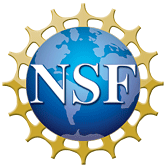Alexander Friedman
|
Assistant Professor, Biological Sciences
|
At UTEP I am leading a team of 10 PhD students. My overall goal is to encourage students to start research and continue their training. Through the last 12 years: 50 students continued to PhD training, ~200 students continued to MD training, 1 started postdoctoral training, and 2 students accepted faculty positions; ~50 students are coauthors on publications listed below. The research undertaken by our lab will fill a critical gap at UTEP by bridging experimental neuroscience and computation and increasing the emphasis on interdisciplinary research in these fields at UTEP. This has been successfully demonstrated by three major publications.A Decision-Space Model Explains Context-Specific Decision-Making (2025, Nature Communications)RECORD, a High-Throughput, Customizable System that Unveils Behavioral Strategies Leveraged by Rodents During Foraging-like Decision-Making (2024, Communications Biology)Effect of Acute Alcohol Consumption in a Novel Rodent Model of Decision-Making (2025, Alcohol and Alcoholism)By harnessing this emphasis on convergent education and training, our lab will train students to think critically at the intersection of different fields in science while performing innovative research, an ability that is increasingly vital in today’s world as we move away from siloed expertise. The hands-on, tactile learning approach advocated in this proposal, thanks to its integration of research and education, is also key to fostering researchers who can pursue independent research.



